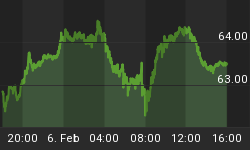
Ramiro Larroy discusses his views on what lessons the world can learn from Argentina about investing in an era of financial repression.
Gordon T. Long interviewed Ramiro Larroy, Partner & Director, Integras Capital in Buenos Aires, Argentina.
Financial Repression
"Financial Repression globally is basically governments keeping interest rates below the rate of inflation as a way of taxing savers"
Ramiro suggests that in Argentina it is much more direct it its enactment by governments. "We had many experiences throughout the years where depositors in banks were 'bailed-in' and forced to take on debt as opposed to their deposits"
"IT IS A TAX! It was applied a little differently in Argentina than how it is being achieved by governments in developed countries."

The Argentinian Experience
"When Argentina regained democracy in 1983 we had a government that from an economic standpoint did not do that well. They ran fiscal deficits and prices of exports were poor. By the end of this government in 1989 the country was heavily in debt with inflation. At the same time they paid high interest rates on deposits so people kept deposits in the bank. With these deposits the banks were able to buy government debt. In 1990 enacted (like at midnight!) a program where everyone that had deposits received a bond." Literally, overnight with no recourse.
"Maybe people were able to earn a rate higher than inflation before, but all of a sudden they lost everything!" The government did not have the money to pay the money owed on the bonds it had issued. This was a way to reset and issue a new long term bond." Argentinians have experience in their bank deposits being taken from them.
Changed Investment Sentiment
"These banking actions resulted in a huge change in the mind set of investors! It is now very difficult for a family to have a substantial part of their assets to be held locally or exclusively in the banking sector. Though rates may be 'ok' in the banks, people are not comfortable with the risks they are taking! Pretty well everyone has developed OTHER WAYS OF STORING WEALTH, from Real Estate, to buying Gold to buying physical US Dollars."
"The more wealthy individuals and families have their wealth outside of Argentina as a way of protecting those assets. It is not about higher returns, but rather not wanting to lose the wealth."
Store of Value Strategies
"Store of Value Strategies are so prevalent that on this day we are talking, in the morning paper of one of the largest newspapers in Argentina, the major story is "8 Strategies Not to Lose Your Wealth in the Upcoming Depreciation! Need I say more!"
.. there are many lessons to be learned in this broad 35 minute interview discussion. Maybe the most important is that Argentina is 15-20 years ahead in regard to Financial Repression investor strategies. Government actions are very predictable when debt becomes too large for officials to handle.















